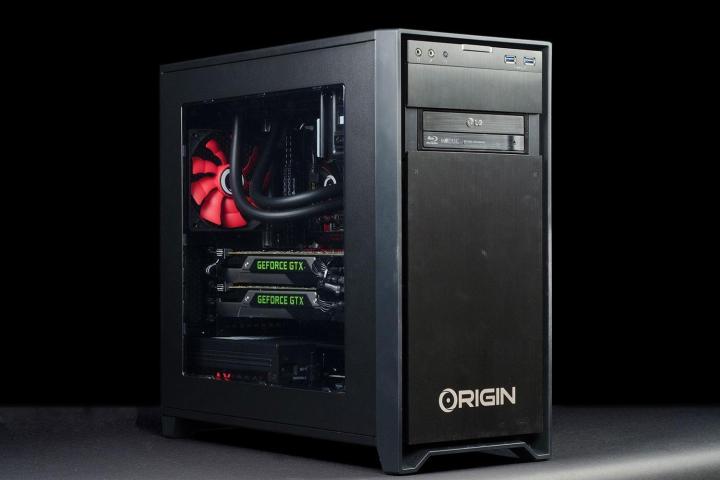
Boutique PC manufacturer Origin now offers the Nvidia GeForce GTX 980 and 970 graphics cards as configurable options with its Genesis, Millennium, and Chronos desktop gaming PCs, the company announced.
The GTX 980 and 970 are brand new additions to Nvidia’s graphics card lineup. They replace the 780Ti, 780, and 770 graphics cards. Prior to the release of the GTX 980 and 970, the 780 Ti, 780, and 770 represented Nvidia’s top of the line single-GPU offerings.
Related: Nvidia GeForce GTX 980 review, specs, benchmarked
Here’s a brief breakdown of each new graphics card.
GeForce GTX 980
The GeForce GTX 980 is powered by 2,048 CUDA cores, and sports a base clock of 1,126MHz, a boost clock of 1,216MHz, and a memory clock of 7,000MHz. The GTX 980 has 4GB of GDDR5 RAM, a memory bus of 256-bits, and memory bandwidth of 224GB/s. The 980 has a trio of DisplayPort connectors, an HDMI port, and a dual-link DVI port.
Related: Origin Millenium review
One of the most impressive aspects of the GTX 980 is the fact that you need significantly less power to run it compared to the 780Ti. The GeForce GTX 980 has a thermal design power (which is a measurement of power consumption) of 165-watts, while the 780Ti, which is the card that it’s replacing, has a TDP of 250 watts.
GeForce GTX 970
The GeForce GTX 970, which is a step below the 980, wields 1,664 CUDA cores, along with base and boost clocks of 1,050MHz, and 1,178MHz, respectively. Like the 980, the 970 also sports a 7,000MHz memory clock, and carries 4GB of GDDR5 RAM. That’s double what the Nvidia GeForce GTX 770 has (2GB). The 970 is replacing the 770.
The 970 features a 256-bit memory bus, and memory bandwidth of 224GB/s, just like the 770. Like the GTX 980, it has three DisplayPort connectors, along with single HDMI, and dual-link DVI ports.
The 970 is significantly more power efficient than the 770. The GeForce GTX 970 has a TDP of only 145 watts, which is nearly 100 watts lower (230) than what the GTX 770 demands.
Possible Origin PC GTX 980/970 configurations
Using Origin’s configuration pages, we put together a trio of similarly configured systems to give you an idea of what you’ll have to pay to get a Millennium, a Genesis, or a Chronos with a GTX 980 or 970 inside.
When stuffed with an Intel Core i5-4690K quad-core CPU clocked at 3.5GHz, a GTX 980, 8GB of RAM, and a 1TB hybrid hard drive, the Origin Chronos costs $1,896. If you step down to a 970, the price gets cut to $1,650.
A similarly configured Origin Millennium with a GTX 980 will run you $2,258. Swapping that out for a 970 drops the price to $2,012.
Finally, there’s the Genesis. If you outfit one similarly to the way we equipped our hypothetical Chronos and Millennium, you’ll pay $2,331. Stepping down to a 970 cuts the price tag to $2,085. All prices are current as of this writing.
If you just want to buy the Nvidia GeForce GTX 980 or 970 solo from a site like Newegg, they’re going for roughly $549, and $329, respectively.



